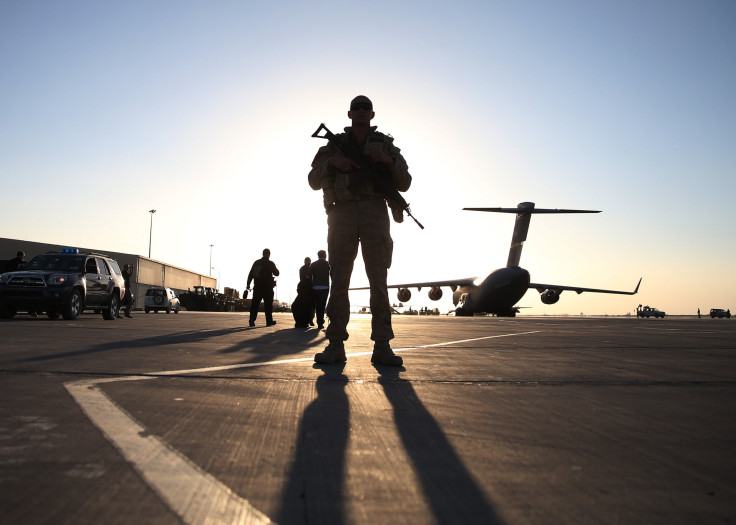NATO And US Close Afghanistan Combat Headquarters After 13 Years Of War

Thirteen years after invading Afghanistan, U.S. and NATO forces have closed their combat headquarters Monday amid fresh attacks in the country from a resurgent Taliban. The first of two ceremonies marked the final month of formal NATO and U.S. combat missions in the country, which will officially cease on Dec. 31.
At the request of the Afghan government, however, U.S. troops will continue to target al Qaeda and Taliban fighters into 2015, as a force of 13,000 coalition troops remains past the turn of the year. That's less than 10 percent of the 140,000 soldiers at the peak of involvement in 2011.
War operations typically slow down greatly or even cease altogether during the harsh Afghan winters, but the campaign of bombing by the Taliban rather than military attacks on enemy soldiers may keep going this winter. "I don't think the war will slow or stop during the winter, as attacks on cities are not contingent on the weather," Afghan political analyst Wahid Muzhdah said, as quoted by the Associated Press. "I believe attacks in the cities will increase -- they attract media attention."
When U.S. and NATO forces first began combat operations in Afghanistan in October 2001 in the wake of the Sept. 11 attacks in the U.S., the sitting Taliban government and military was quickly beaten back, and U.S.-led coalition forces were able to take control over much of the country. But as the Iraq war began one and half years later, attention pivoted away from Afghanistan, allowing a militant insurgency operating on the Afghanistan-Pakistan border to grow. That Taliban insurgency is now threatening to beat back the Western troops and the Afghan forces they trained, which risks destabilizing much of what was achieved in the previous 13 years.
To that end, the 10,800 U.S. troops plus NATO allies that will remain in Afghanistan beyond the turn of the year have been authorized to launch attacks against the Taliban and al Qaeda, using ground forces and air support as necessary. New Afghan President Ashraf Ghani Ahmadzai has also lifted a ban allowing the U.S. to conduct night raids, something that was not allowed under the previous presidency.
By the end of 2015, U.S. troop presence will be cut in half to 5,500 before hitting near zero by Christmas 2016. Zabihullah Mujahid, a Taliban spokesman, told the AP that the group would continue to fight until Afghanistan was clear of all foreign troops.
"The Americans want to extend their mission in Afghanistan, the motive being to keep the war going for as long as possible," he said. "And for as long as they do, the Taliban will continue their fight against the foreign and (Afghan) government forces."
© Copyright IBTimes 2025. All rights reserved.






















